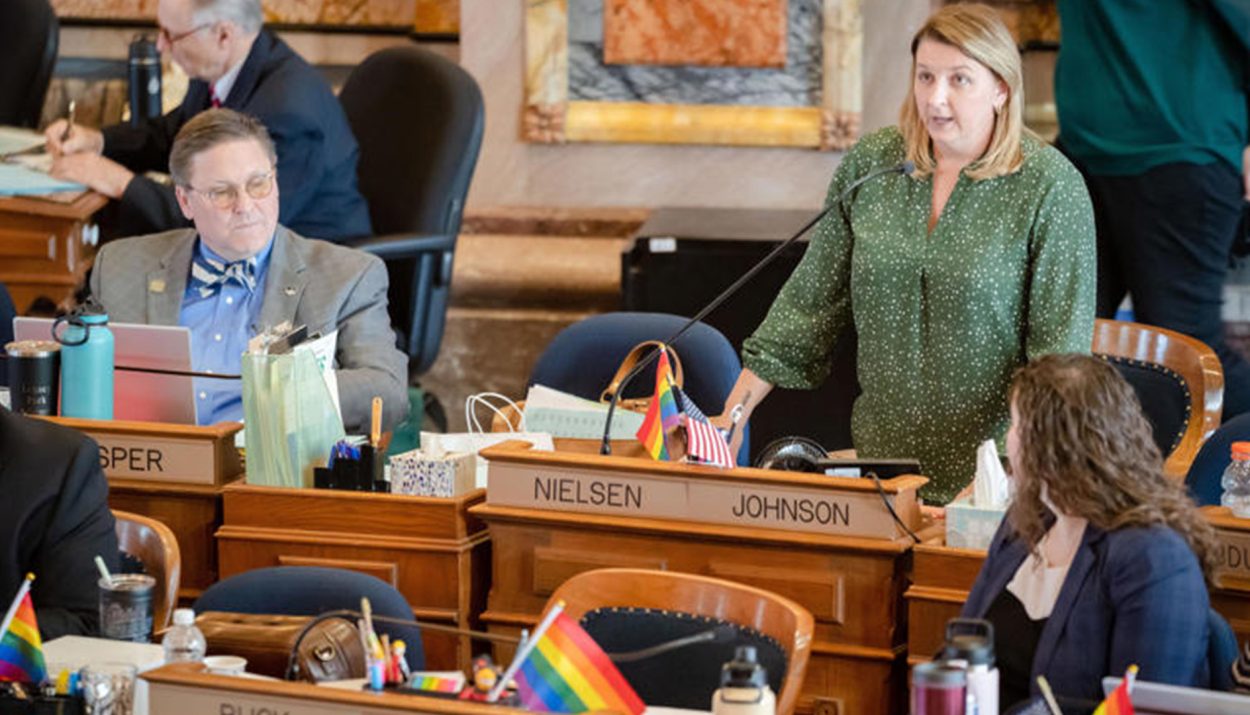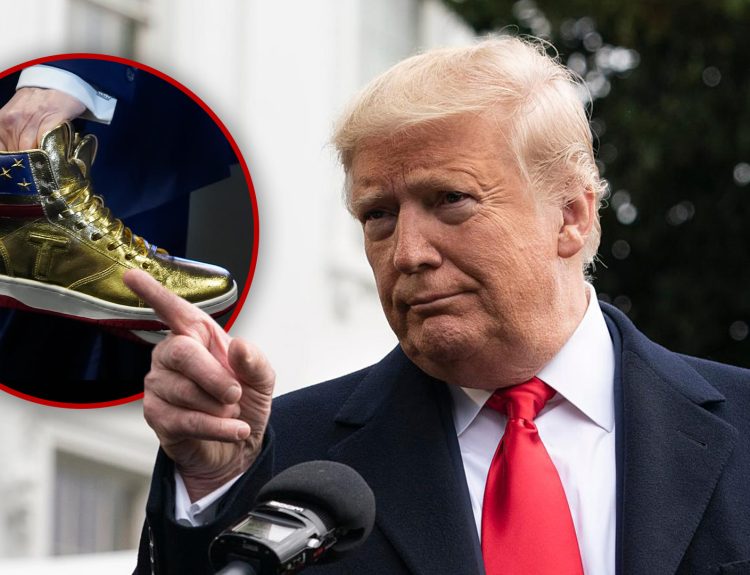An Iowa House subcommittee, consisting of three Republicans and two Democrats, advanced an election bill on Tuesday (Feb. 13) that would ensure Donald Trump a spot on the state ballot – even if he were a convicted felon. The two Democrats heavily opposed the bill, but it didn’t matter. Here’s what went down and what this means for Iowa moving forward.
Two Democrats Walk Out Of Subcommittee Meeting
The two Democrats on the five-member panel were Rep. Amy Nielsen (North Liberty) and Rep. Adam Zabner (Iowa City). At one point during the meeting, Subcommittee chair Rep. Bobby Kaufmann (R-Wilton) interrupted Nielsen while she was talking – and she called him out on it.

Kaufmann claimed that he could ‘refer to whoever I want to refer to whenever I want to refer to them’ because it’s ‘[his subcommittee].’ Moments later, while Kaufmann was preparing his closing statement, Nielsen and Zabner got up and walked out. “You don’t need me,” Nielsen said as she headed for the exit.
“If I Can’t Be Heard, Why Am I Here?“
Both Nielsen and Zabner spoke to reporters upon walking out of the meeting. “I think it was made pretty clear that what I had to say was not well received, did not want to be heard,” Nielsen said. “If I can’t be heard, why am I here?”

Zabner also criticized the bill, taking direct aim at Donald Trump. “It takes quite a lot of nerve to call a bill an election-integrity bill when the point of the bill is to let felons run for office,” Zabner said. “And particularly someone like Donald Trump, who has so little integrity.” Unfortunately, their two votes weren’t enough on Tuesday.
Kaufmann Claps Back, Says It Has Nothing To Do With Trump
Rep. Kaufmann was a senior adviser for Trump’s presidential campaign, but he claimed his backing of the bill had ‘nothing to do with Trump.’ Instead, he credited his support to his desire to maintain ‘the highest level of election integrity’ in the state of Iowa.
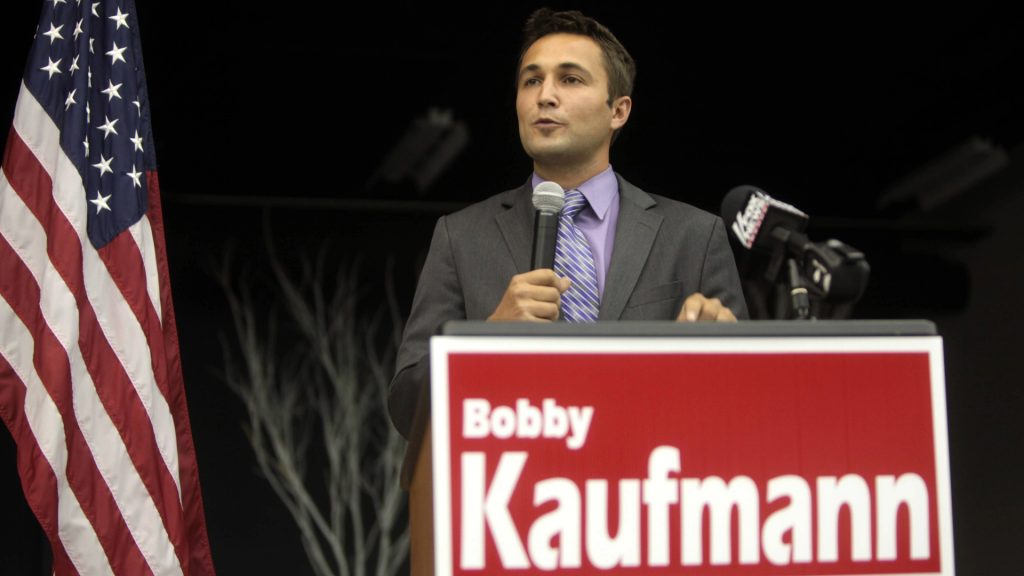
He argued that lawmakers aren’t responsible for deciding who’s on the ballot – it’s something that should be decided by the voter. He called it ‘arrogant’ to try and ‘overrule’ what the voter wants, no matter what party they identify with. As for Nielsen and Zabner, Kaufmann says they were ‘treating this bill very unseriously’ and accused them of acting childish.
Senate Study Bill 3161 and House Study Bill 697
House Study Bill 697 and Senate Study Bill 3161 are two identical election bills introduced in Iowa recently – 697 is a product of the Iowa House of Representatives, while 3161 is a product of the Iowa Senate. Both bills were advanced by their respective Subcommittees.
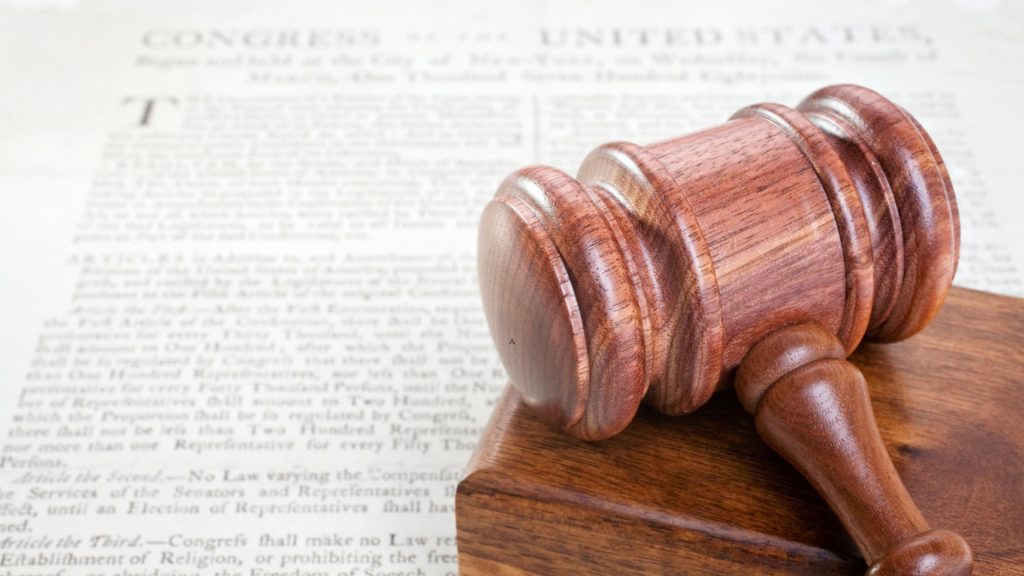
The bills would change how future Iowa elections are run – including the upcoming 2024 presidential election. The impact can be broken down into four primary categories – eligibility challenges, absentee ballots, ballot drop boxes, and ranked-choice voting. Let’s take a closer look at each one.
1. Limit Eligibility Challenges For Presidential Candidates
Under current Iowa law, presidential candidates (and Congress) are required to sign an affidavit confirming they understand they’re automatically disqualified from holding office if they have a felony on their record. Under the new bill, candidates wouldn’t have to sign this affidavit – meaning convicted felons could put their names on the ballot.
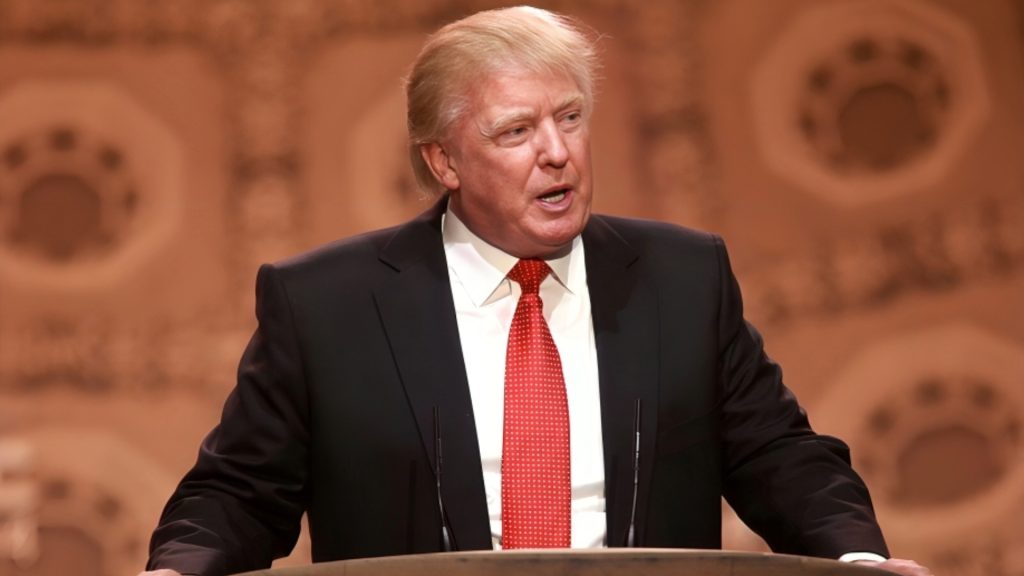
The timing of this bill is off – with Colorado removing Trump from their ballot recently and, not to mention, the former President is facing 91 felony charges across four different cases. “Someone who worked for the Trump campaign is here passing a law specifically to help Donald Trump,” said Zabner while talking to reporters.
2. Changes To The Absentee Ballot Process
The bill also makes several changes to the way absentee ballots are sent and processed. For example, county auditors must receive these ballots by the end of business day before the election – as opposed to the end of business day on Election day. To make up for the lost day, absentee ballots will be mailed out two days earlier.
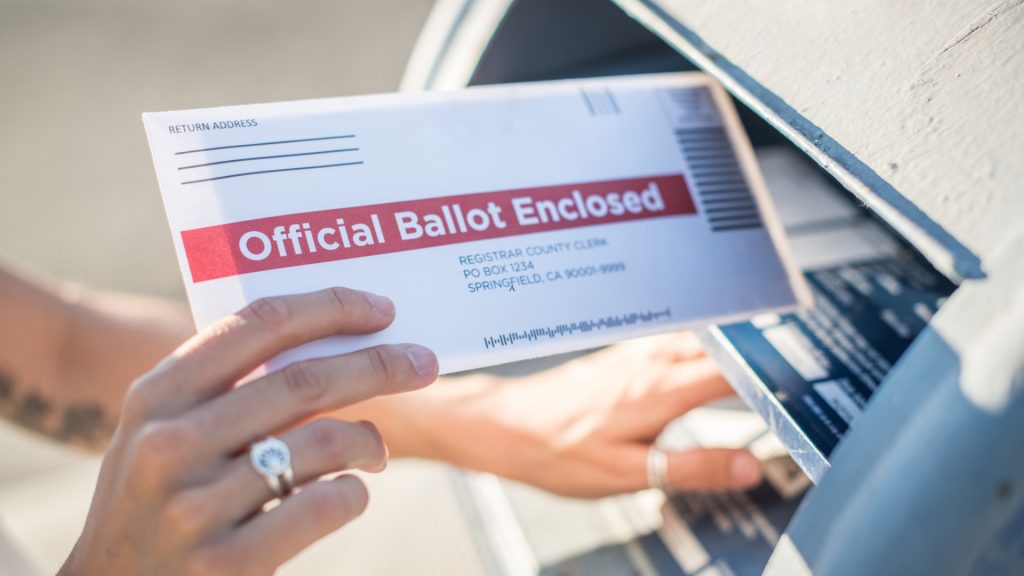
Another section of the bill requires each county to send at least three envelopes with each absentee ballot. For counties that don’t already do this, that means purchasing new envelopes in time for the 2024 presidential election – which might not be possible, according to Adams County Auditor Becky Bissell.
3. Ban On Ballot Drop Boxes
In an apparent move to make voting harder – not easier – for Iowans, the new bill would ban ballot drop boxes across the state. Bissell was heavily against this idea, arguing that drop boxes end up saving counties a substantial amount of money in return postage costs – not to mention how much easier it is for people with disabilities.

“Think somebody with a small child in the car. Think of an elderly person or someone who is mobility challenged and so forth who can drive up and drop it in rather than having to get out and go in,” Bissell added. Unfortunately, Kaufmann disagrees – arguing that people can just use USPS.
4. Ban On Ranked-Choice Voting
This part of the bill is nothing new to Iowa because ranked-choice voting is already not allowed under current state law. Ranked-choice voting allows voters to rank candidates in order of preference. If their top choice is eliminated, their vote goes to the second choice – and so on.
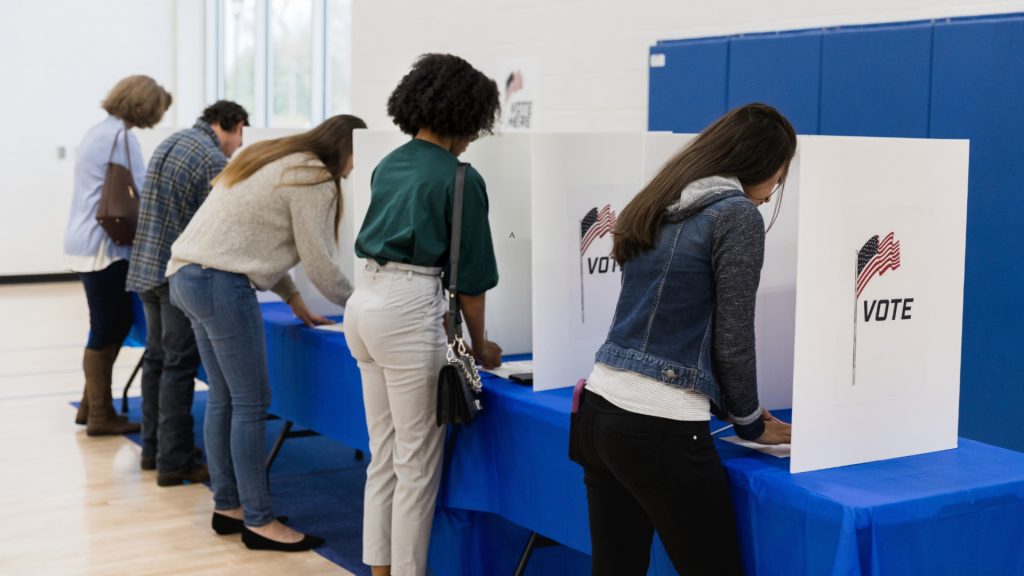
Many Iowans are interested in learning more about ranked-choice voting, but Republicans don’t like it. In fact, Kaufmann described it as ‘political welfare for people that can’t win elections.’ Others argue that it saves taxpayer money by avoiding a runoff and encourages more moderate candidates.
Arizona Following Similar Path
Iowa isn’t the only state passing election bills in favor of Donald Trump – Arizona is also in on the action. In fact, they’ve introduced three bills (two in the state Senate and one in the state House) that could damage the integrity of future elections.

First, Senate Bill 1158 would prevent the 14th Amendment from barring anyone from the Arizona ballot. Second, House Bill 2786 would allow Arizona to remove Biden from the ballot if Trump were removed from a ballot in any other state. Finally, Senate Continuing Resolution 1014 would give Arizona exclusive authority to select presidential electors.

